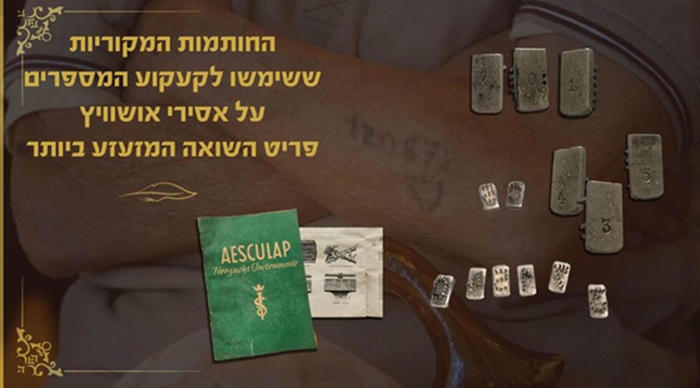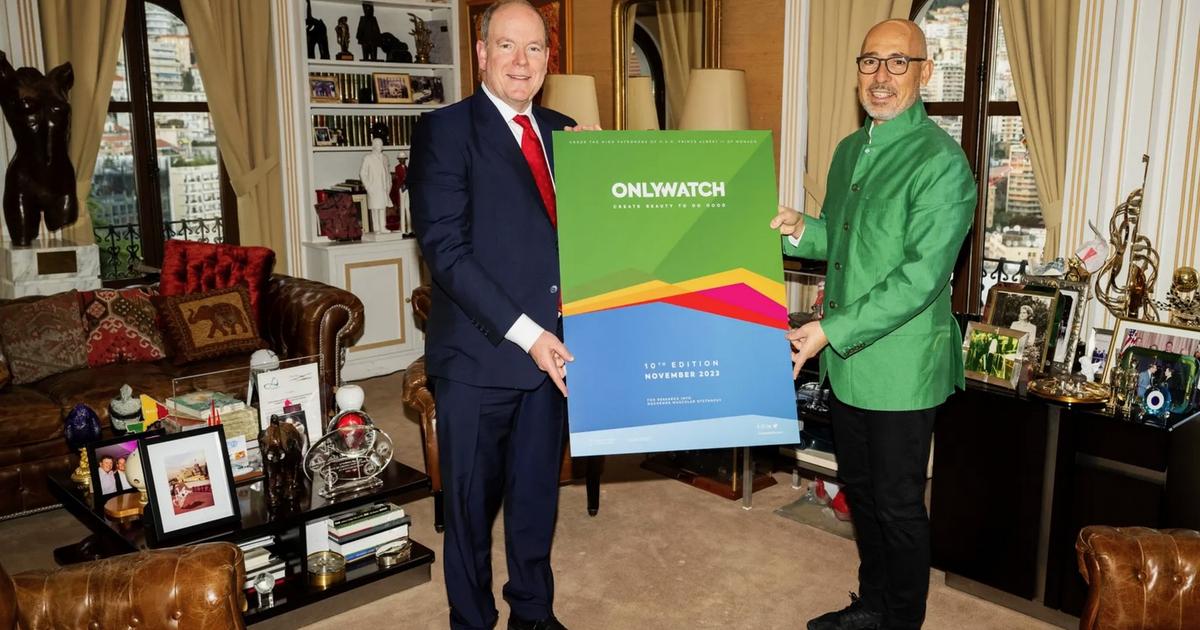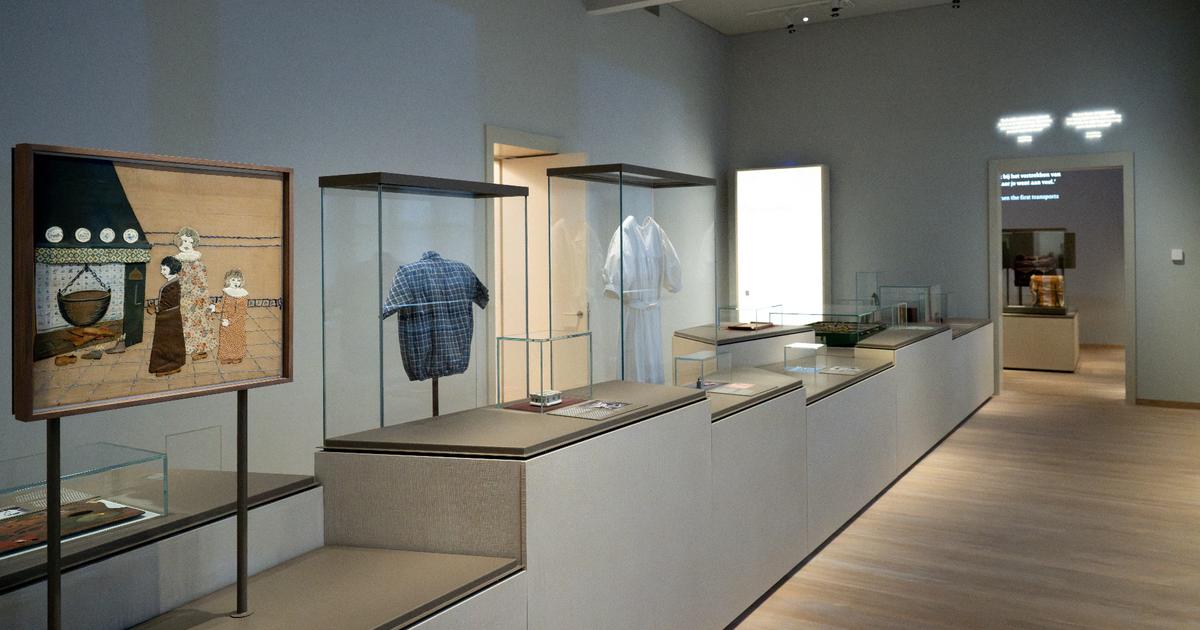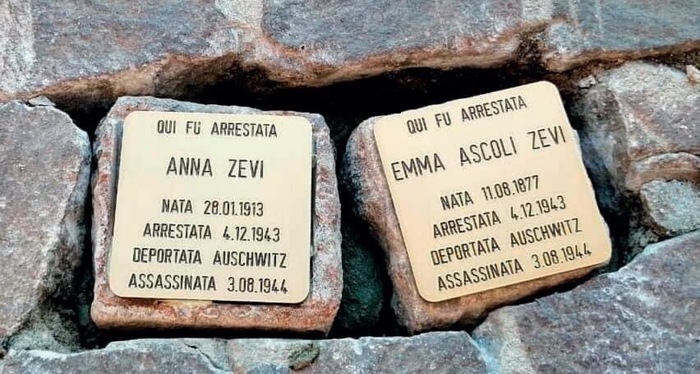The Tel Aviv District Court ordered the postponement of an auction, set for November 9, in which metal stamps used (according to the organizers) by the Nazis in the Auschwitz extermination camp to tattoo the arms of the Jewish internees.
The appeal was presented today by the 'Center for organizations of Holocaust survivors'. The court has set "an urgent hearing" for November 16. Meanwhile, the president of the association of Jews in Europe, Rabbi Menachem Margolin, wrote to the Israeli minister of justice Gideon Saar to ask him for an intervention. "Please act immediately - he wrote - to prevent the public auction of those Nazi stamps which, to our dismay, were fixed in Jerusalem". "We will act according to the decisions of the Tel Aviv court," said the owner of the auction house, Meir Tzolman. Moreover, he doubted that the Saar justice minister has any capacity to intervene in the affair.
THE CASE -
The horror of Auschwitz had appeared in recent days in the Gilo district, in Jerusalem, where an auction house had put up for sale artifacts considered by now unobtainable: eight small marks used to print numbers on the skin of the Jews interned in that lager. "There are eight metal tablets, one centimeter by one and a half centimeters each, on which the outline of a different figure appears," explained the owner of the auction house, Meir Tzolman.
A short distance from his building, the director of the Yad Vashem Museum Dany Dayan immediately went on the attack claiming that "the trade in such objects is morally unacceptable and only encourages the production of fakes". "Yad Vashem - he added - is opposed to such sales and asks auction houses and online sites to stop selling historical objects deriving from the Holocaust". Tzolman then explained to ANSA that he had decided to sell that sort of stamps "precisely to avoid the risk of them disappearing from the pages of history" and in the hope that they reach a museum. "In Auschwitz - he said - my grandfather, Yechiel Tzolman, was also interned. He too was tattooed on his arm by the Nazis.He was saved only thanks to the physical prowess that induced his tormentors to assign him to hard work rather than elimination. "After the Shoah he would then immigrate to Israel, where he died 20 years ago. The auction house of his nephew - a Jew Orthodox - is also a hymn to Jewish culture, with constant sales of ancient Hebrew texts and manuscripts. "In my family - added Tzolman - no one objected to the sale of those tablets".In my family - added Tzolman - no one objected to the sale of those tablets ".In my family - added Tzolman - no one objected to the sale of those tablets ".
As far as he knows, those metal stamps with the cipher-shaped punches were placed in a wooden frame, and then forcibly stamped on the prisoner's flesh. Then indelible ink of blue color was poured into the open wounds. "It was the same technique used then to mark livestock - he explained -. But the dimensions had been specially adapted for humans, so they were much smaller". With these tattoos the Nazis wanted to make the prisoners understand that even if they escaped, they would inevitably be tracked down, like cattle in disarray. Also included in the sale is a manual produced by the German company Aesculap, which illustrated "the correct use of the product".
According to Tzolman, a Holocaust survivor confirmed to him that he had seen those kinds of brands in person.
In Israel, the auction, set for November 9, has raised a crawl of controversy.
But Tzolman says he is determined not to cancel it.
"There is a great deal of interest, today the offers have multiplied. I think those tablets will be purchased at a price of 30-40 thousand dollars".
Nothing he says has moved Yad Vashem in the slightest, who refused to have any contact with him.
In general terms, however, he made it known that he was willing to receive those tablets to analyze their authenticity and possibly use them as a historical testimony of the past.




/cloudfront-eu-central-1.images.arcpublishing.com/prisa/OFIE3IOCHJH4RI645WWWIXYPFM.jpg)


/cloudfront-eu-central-1.images.arcpublishing.com/prisa/QNGKAJVA35D7BER25KAR7IOHMM.jpeg)







